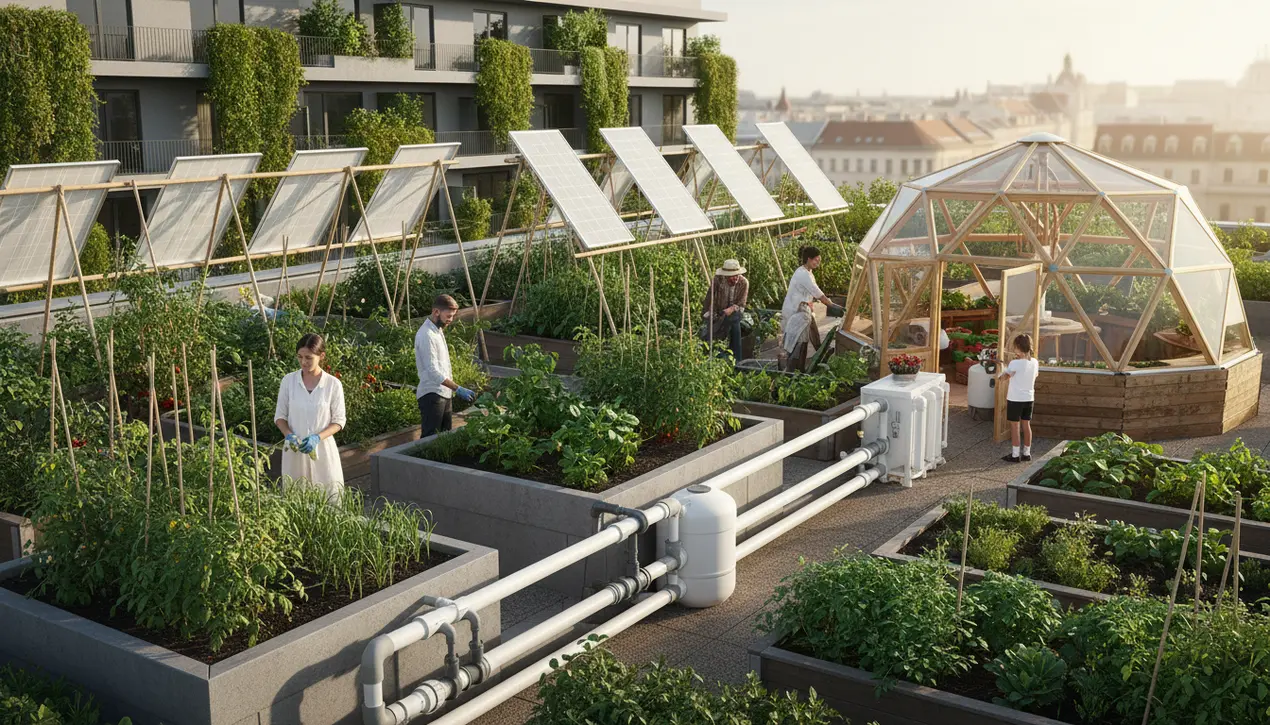
Otherreal estateSustainable Architecture
Zero waste kitchen city expands into self-sustaining urban ecosystem.
RA
Rachel Adams
3 hours ago7 min read
In a bold reimagining of urban life that challenges the very foundations of our consumptive society, Vienna is pioneering a transformation from a conventional metropolis into a self-sustaining urban ecosystem, with the Zero Waste Kitchen City project expanding its domestic prototype into a comprehensive closed-loop system. This initiative, far from being a mere architectural experiment, represents a profound ecological and sociological shift, aiming to sever the linear 'take-make-waste' model that has defined modern cities and instead create a regenerative urban metabolism where waste becomes a resource, energy is generated locally, and food production is integrated into the fabric of daily life.The core philosophy draws heavily from natural ecosystems, where there is no such thing as waste—only nutrients cycling through different states—and applies this principle to urban planning, envisioning districts where organic kitchen scraps are composted to enrich soil for community gardens, greywater is filtered and reused for irrigation, and renewable energy sources like solar and biogas from food waste power households, effectively turning each apartment block into a semi-autonomous living organism. This vision for Vienna is not emerging in a vacuum; it builds upon a growing global movement towards circular economies, yet it distinguishes itself through its sheer scale and integration, moving beyond isolated eco-villages to retrofit a major European capital.The potential consequences are staggering, offering a viable blueprint for cities worldwide grappling with the dual crises of resource depletion and climate change, potentially reducing landfill contributions by over 80%, slashing carbon footprints associated with food miles and waste management, and fostering unprecedented community resilience. However, the path is fraught with challenges, from the significant upfront investment required for retrofitting existing infrastructure to navigating complex municipal regulations and, most critically, fostering the necessary behavioral change among citizens accustomed to the conveniences of disposability.Experts in urban ecology point to historical precedents like the ancient city of Mohenjo-daro, with its sophisticated water management, and more recent experiments like Curitiba, Brazil's recycling programs, but they agree that Vienna's holistic, system-wide approach is unprecedented for a city of its stature and could set a new global standard if successful. The project's success will ultimately be measured not just in tonnes of waste diverted or kilowatts generated, but in its ability to cultivate a new urban ethos—one of stewardship, interdependence, and a deep-seated understanding that the health of the city is inextricably linked to the health of the planet it inhabits.
#zero waste
#urban ecosystem
#closed-loop systems
#sustainable architecture
#Vienna
#urban planning
#featured
Stay Informed. Act Smarter.
Get weekly highlights, major headlines, and expert insights — then put your knowledge to work in our live prediction markets.
Related News
Comments
Loading comments...
© 2025 Outpoll Service LTD. All rights reserved.